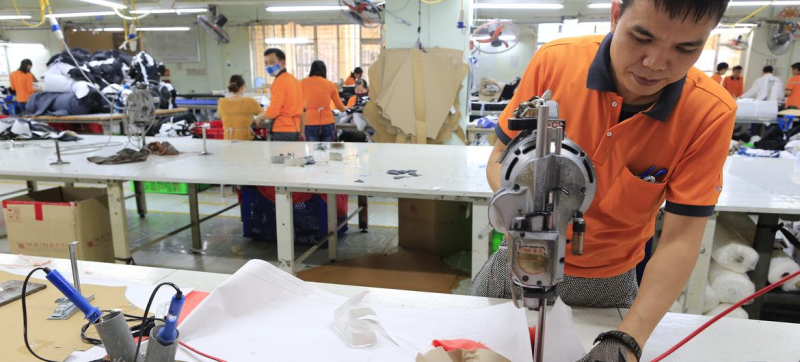- India Sees 9% Drop in Foreign Tourists as Bangladesh Visits Plunge |
- Dhaka Urges Restraint in Pakistan-Afghan War |
- Guterres Urges Action on Safe Migration Pact |
- OpenAI Raises $110B in Amazon-Led Funding |
- Puppet show enchants Children as Boi Mela comes alive on day 2 |
UN Warns US Tariff Delay Deepens Global Trade Uncertainty

The US is a major export destination for the apparel and garment industries in many developing countries.
A leading UN trade official warned on Tuesday that the United States’ decision to delay the end of a tariff suspension by a few weeks risks prolonging global uncertainty and undermining long-term investments and commercial contracts.
While the initial 90-day pause on so-called “reciprocal” tariffs offered some relief compared to planned increases of up to 50 per cent, the US imposed a 10 per cent baseline tariff instead, added on top of existing duties. This means many countries – especially developing economies – face higher costs when exporting goods to the US.
The tariff suspension, originally set to expire soon, has now been extended until August 1, further increasing uncertainty, said Pamela Coke-Hamilton, Executive Director of the International Trade Centre (ITC), at a regular news briefing at the UN Office in Geneva (UNOG).
She warned that this move adds to a mounting “dual shock” of rising trade restrictions and deep cuts to development aid, which are hitting developing countries the hardest.
The ITC is a joint United Nations–World Trade Organization (WTO) agency supporting businesses in developing countries.
“Economic uncertainty has real-world consequences for countries and sectors,” Ms. Coke-Hamilton said, citing volatility in gold and precious metal flows as a case in point.
After the US exempted those commodities from the new tariffs, trade volumes surged – with gold imports into Switzerland up 800 per cent year-on-year in May, based on US import data.
Ms. Coke-Hamilton noted that since the beginning of the year, ITC has tracked more than 150 new restrictive trade measures globally.
Layered onto existing global trade disruptions since the start of the war in Ukraine, the resulting strain has disproportionately impacted least developed countries (LDCs), which often face the steepest tariffs and have the narrowest fiscal space to respond.
Lesotho, for instance, faces a 50 per cent tariff on apparel exports to the US, threatening its largest industry and tens of thousands of jobs. Viet Nam, though having negotiated a lower tariff, still faces a 20 per cent levy – double the current baseline rate – potentially reshaping its $937 million auto and auto-related trade with the US.
Ms. Coke-Hamilton also flagged concerns over cuts in development financing, noting that G7 countries are projected to reduce aid spending by 28 per cent next year – the largest drop in five decades.
“A perfect storm is brewing – just as trade becomes more unpredictable, external support through aid is also shrinking,” she said.
To respond, she urged developing countries to focus on three strategic areas: strengthening regional value chains, investing in value addition to reduce commodity dependence, and prioritising small business resilience.
“Stability can come from the ground up,” she said.
“Although uncertainties lie ahead in both the trade and aid landscapes, developing countries can still find ways not only to navigate these challenges but to take on an active role in bringing about greater stability.”

